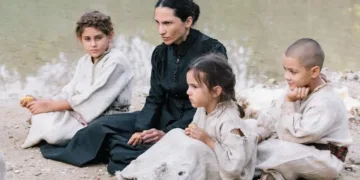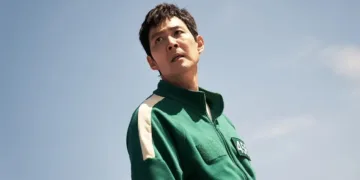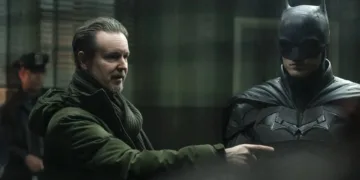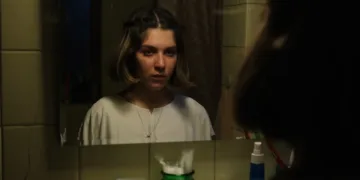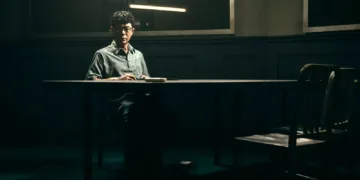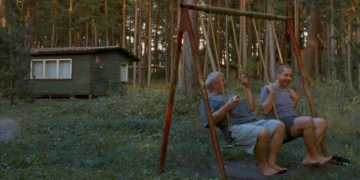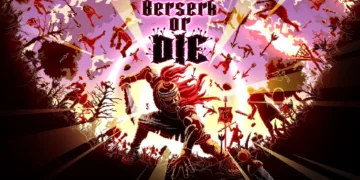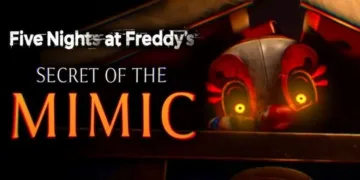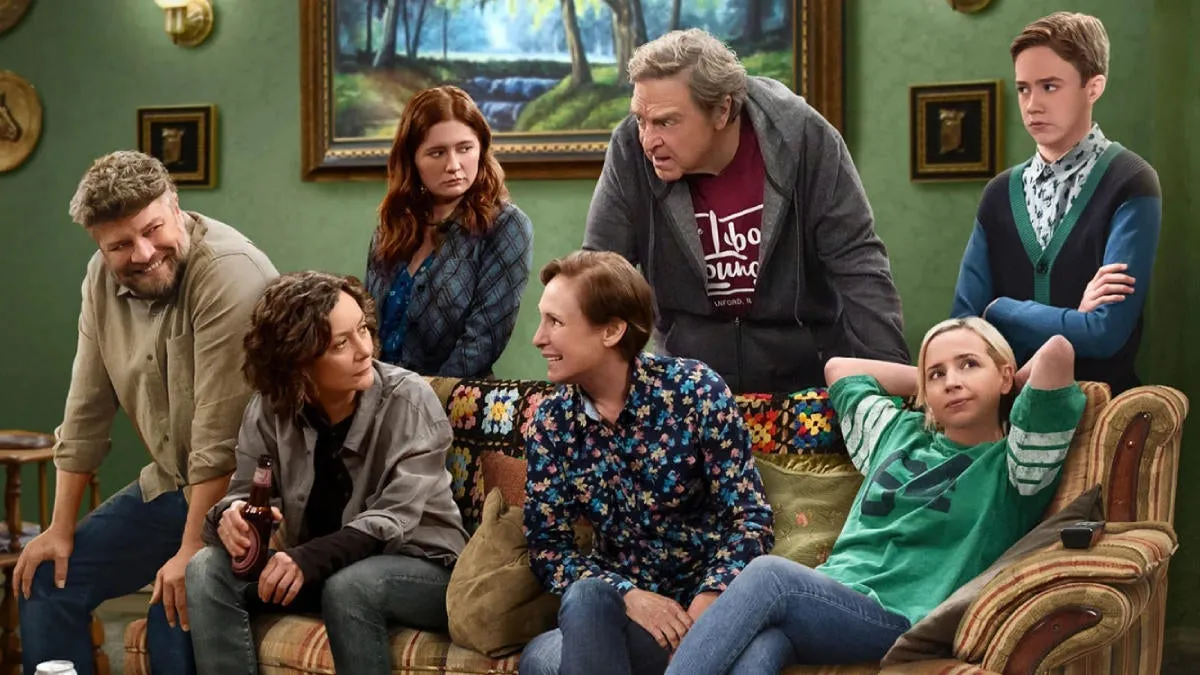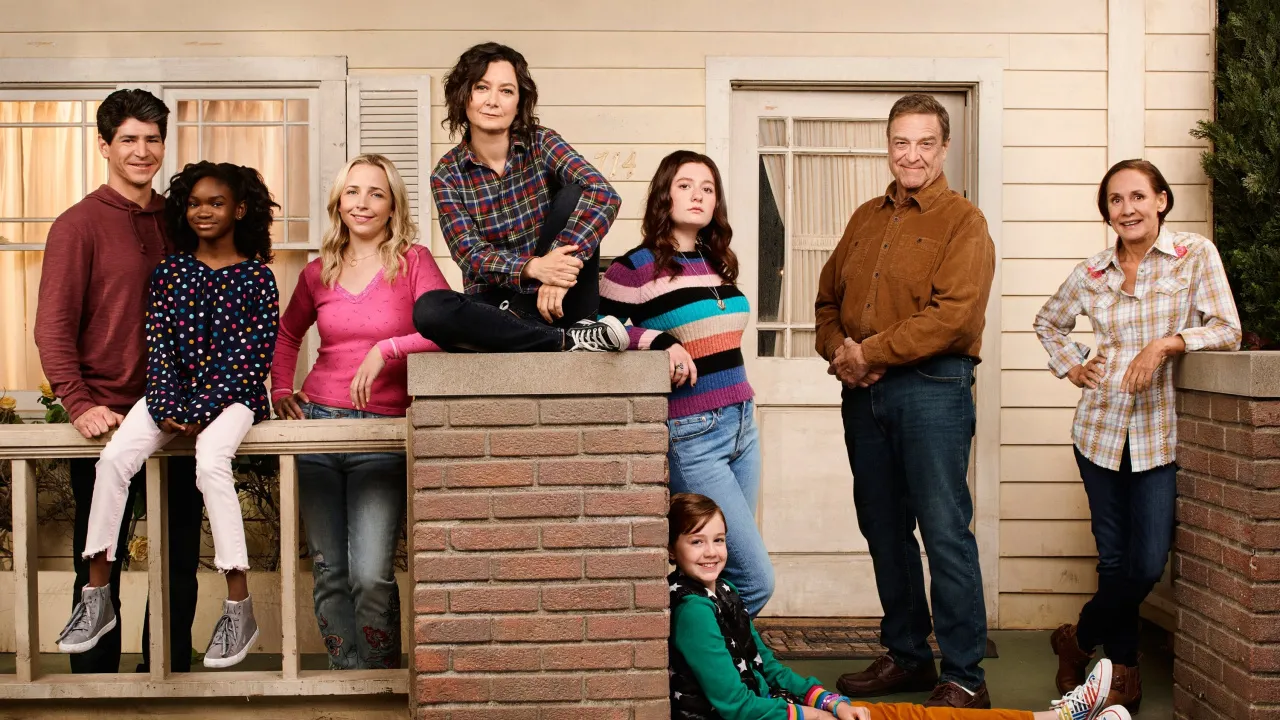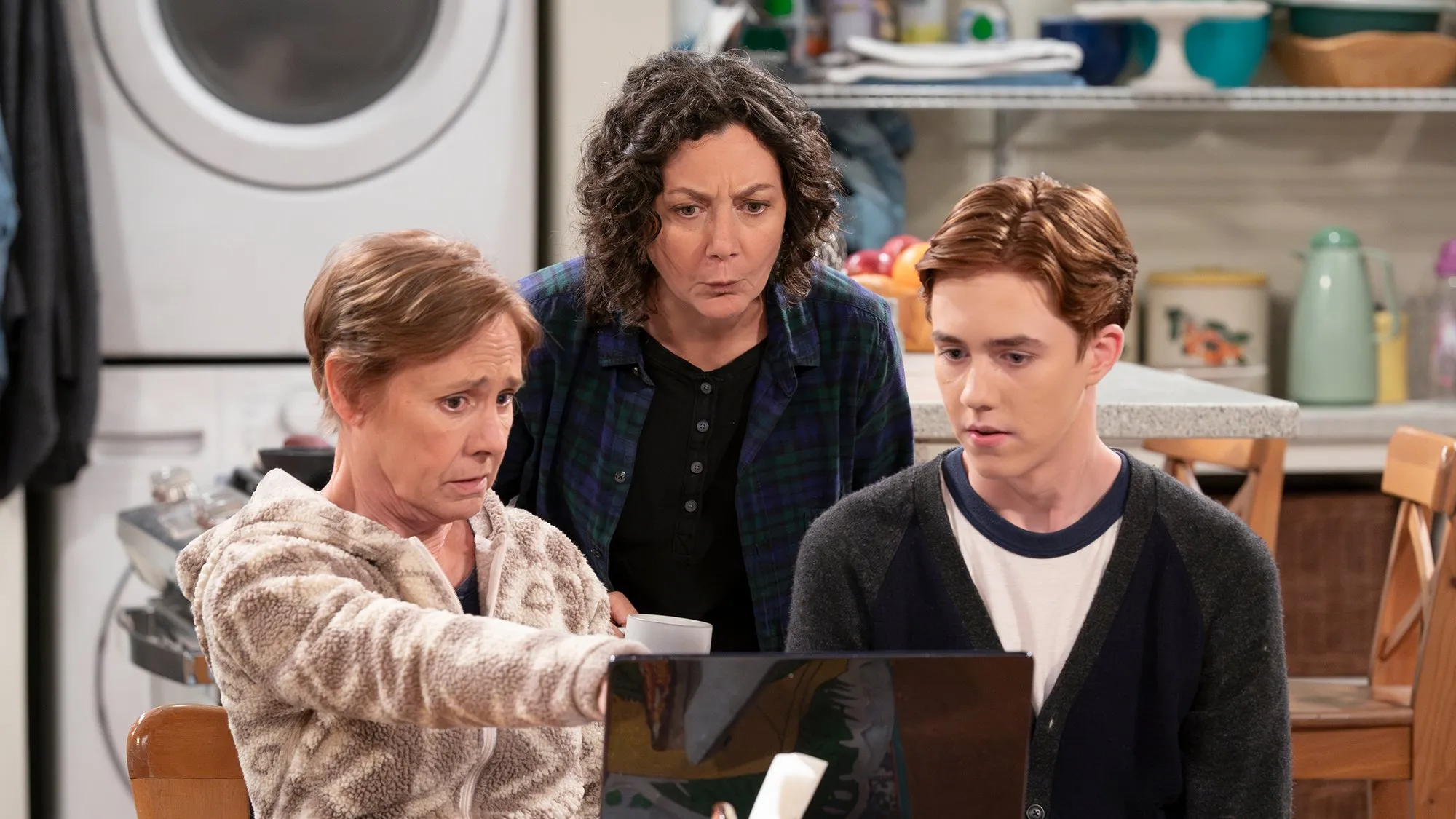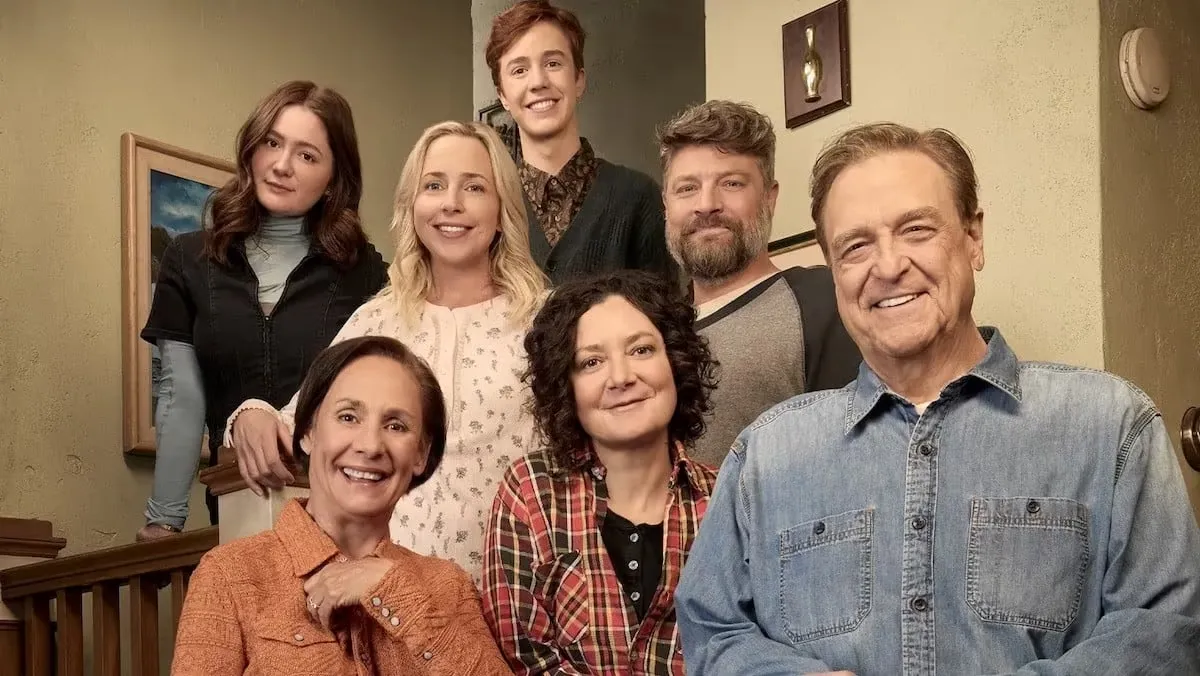The Conner family, resurrected into The Conners following the implosion of the Roseanne revival, represents something beyond a simple continuation of a television dynasty; it is a curious case study in network tenacity and a persistent, if sometimes weary, voice for working-class narratives in an evolving media sphere.
For several seasons, the series has committed to depicting the unglamorous, day-to-day economic and personal trials of an Illinois family, a portrayal that often stands in stark relief to the escapism prevalent on many platforms. Their struggles with bills, jobs, and personal shortcomings form the very bedrock of the show.
With the announcement that its seventh season will be its final, abbreviated run, anticipation builds for how this chapter will resolve, or perhaps pointedly not resolve, the characters’ long-fought battles. The series now faces the challenge of crafting a send-off that honours its commitment to a certain gritty truthfulness while still providing a measure of finality for its enduring audience.
Valuing a Conner Life: The Opioid Lawsuit and the Specter of the Past
The specter of Roseanne Conner, specifically the opioid overdose that facilitated her character’s departure and the subsequent rebranding of the show, remains a potent and deliberately utilized force in this final season. This originating tragedy, far from a passively acknowledged historical marker, is re-animated as a central plot: a lawsuit targeting the pharmaceutical company tied to her death.
Such a narrative turn thrusts the Lanford residents’ private grief into the arena of a widespread public health crisis, demonstrating how the show continues to use its platform to reflect, and comment upon, national traumas. Dan Conner’s emotional landscape, and the family’s collective coping mechanisms, are still palpably shaped by this loss.
Dan’s deep-seated hesitation to support the lawsuit becomes a source of significant internal and familial tension. His resistance is not born of apathy but of a desire to shield himself from re-experiencing acute pain, pitting his emotional self-preservation against the family’s flickering hope for a measure of financial recompense.
His deposition, a moment of unvarnished expression, allows for a powerful articulation of individual grievance against an often faceless corporate adversary, a dynamic many viewers outside Lanford might recognize.
The lawsuit’s denouement is perhaps the most telling indictment. The family, assembled with a somber anticipation at Roseanne’s graveside, learns the “value” of her life in the eyes of the legal process: a settlement of $700, insultingly itemized for “travel and other miscellaneous.”
Dan’s stark observation, “Well, I guess we know how much the life of a Conner is worth,” is delivered with a weariness that underscores a lifetime of such diminishments. This outcome is a bitterly ironic yet fitting turn for a series that has consistently refused its characters easy victories, instead using their experiences to highlight systemic disregard and the often-cruel arithmetic of corporate accountability.
The Unchanging Conditions of Conner Country: Money, Meaning, and Mutual Support
The concluding season of The Conners does not deviate from its foundational premise: the persistent, often Sisyphean, pursuit of financial stability by its working-class protagonists. This reflection of widespread economic vulnerability remains a defining characteristic, as seen in Darlene’s incremental career step, Ben’s ambitious, if uncertain, venture into magazine publishing, or Mark’s ethically murky digital efforts to fund his education.
These are not tales of rags-to-riches, but of relentless maneuvering for slight advantages. Even Dan’s mortgage payoff, a significant relief facilitated by Ben, arrives not as a deus ex machina but as an inter-family transaction, quickly contextualized by the ongoing current of monetary anxieties that permeate every Conner household decision; small victories rarely signal a permanent escape from precarity.
Alongside this financial tightrope walk, the season explores the characters’ search for purpose, particularly during moments of transition. Jackie’s somewhat unexpected aspiration to rejoin the Lanford police force, decades after her initial service, indicates a desire for renewed meaning beyond her established roles. Dan, too, must find his footing in retirement, a new chapter that promises rest but also demands redefinition. For younger figures like Harris, assuming leadership at the family diner and establishing her own home are markers of adulthood, yet these milestones are invariably framed by the economic constraints synonymous with the Conner name.
What consistently prevents this depiction of struggle from collapsing into sheer despair is the tightly-knit, if often abrasive, family unit. The Conner living room, a stage for countless arguments and reconciliations, functions as an indispensable hub of emotional, and often material, support. Their interactions, laced with a characteristic acerbic wit and moments of unvarnished affection, affirm the family bond as a crucial, if imperfect, bulwark against external pressures.
This adherence to a gritty realism, even in its farewell episodes, distinguishes the program. There are no convenient, life-altering jackpots or sudden personality overhauls. Instead, the narratives continue to mirror difficult contemporary questions: the long shadow of the opioid crisis, the instability of modern employment, and the complex ethical choices individuals face in a challenging socio-economic landscape, particularly in a technologically evolving world. The show’s final act seems determined to uphold this candid approach to storytelling.
Final Acts, Familiar Struggles: How the Conners Faced Their Futures
In its concluding season, The Conners steers its central characters toward their respective endgames, each arc reflecting the series’ long-standing preoccupation with resilience, adaptation, and the gravitational pull of circumstance. Dan Conner (John Goodman), the family’s weary but steadfast anchor, confronts the raw edges of past grief through the lawsuit tied to Roseanne’s death.
This painful revisiting occurs even as his marriage to Louise (Katey Sagal) provides a measure of later-life stability. His transition to retirement, a milestone not achieved without Ben’s financial intervention, is layered with quiet complexities, culminating in a direct, fourth-wall-breaking “Good night” that feels earned by decades of shared history with the audience.
Jackie Harris (Laurie Metcalf), whose trajectory has often been a whirlwind of well-intentioned chaos, seeks a new professional identity by attempting a return to the Lanford police force. This endeavor, coupled with her settled relationship with Neville (Nat Faxon), indicates a persistent search for meaning and utility, handled by the writers with their typical mix of affection and realism. Metcalf’s own palpable emotion during the series’ final scenes highlights the significant personal investment tied to these long-inhabited roles.
Darlene Conner (Sara Gilbert), the pragmatic and often cynical intellectual of the family, sees a modest improvement in her career at the college cafeteria. Her marriage to Ben (Jay R. Ferguson) continues to be a dance of individual ambitions, particularly as he dedicates himself to his new magazine. A previously navigated emotional dalliance outside her marriage serves as a reminder of her internal restlessness, though she ultimately recommits to her established life, remaining the key figure through whom many of the family’s dramas are filtered and addressed.
Becky Conner-Healy (Alicia Goranson) arrives at a place of relative calm, a notable development given her character’s history of significant challenges. Her relationship with Tyler (Sean Astin), who becomes a fixture in the household, alongside her ongoing responsibilities as a mother and her academic pursuits, paints a picture of hard-fought stability—a quietly hopeful, if realistically constrained, outcome.
The younger Conners offer pointed reflections of contemporary pressures. Harris (Emma Kenney) steps into more defined adult roles, managing the diner and securing her own apartment, signifying incremental progress. Mark’s (Ames McNamara) clandestine hacking to finance his university aspirations is a stark, almost unsettling, commentary on the lengths to which ambitious young people from under-resourced backgrounds might feel pushed in the current socio-economic and educational climate.
The diminished presence of characters like DJ Conner in these final episodes subtly acknowledges the organic, sometimes distant, ways families evolve, while the smooth incorporation of partners like Louise and Tyler into the family fabric mirrors the shifting compositions of households, even within traditionally depicted working-class settings.
Narrative Threads in the Final Weave: Justice, Ambition, and Digital Dilemmas
The concluding, abbreviated season of The Conners constructs its primary narrative arcs with an eye toward both thematic consistency and a sense of impending resolution. Dominating the emotional landscape is the lawsuit against the pharmaceutical company implicated in Roseanne’s death. Jackie’s initiative drives this storyline, forcing Dan and the wider family to confront painful memories.
The resolution—a meager settlement—is pointedly anticlimactic, a stark reflection of the show’s enduring cynicism regarding systemic justice for ordinary individuals versus entrenched corporate power, a theme that continues to find purchase in the socio-political climate of 2025.
Jackie’s concurrent endeavor to rejoin the Lanford police force serves as a significant personal subplot. Her motivations appear rooted in a desire for renewed purpose in mid-life. Her interactions within the department, including a notable scene with an officer played by Zoe Perry, offer moments of character exploration. The plausibility of her return after a long absence is treated with the show’s typical blend of earnestness and gentle skepticism, largely sidestepping a deeper critique of policing to focus on Jackie’s individual drive.
In the domestic sphere, Darlene and Ben’s marital dynamics are explored with continued realism. Darlene’s minor career progression provides a counterpoint to Ben’s immersive, and somewhat isolating, efforts to launch his hardware trade magazine. The narrative revisits their established patterns, acknowledging the persistent effort required to maintain connection when individual ambitions and external pressures create distance.
Perhaps the most contemporary of the season’s central plots is Mark’s clandestine turn to “black hat” hacking to secure funds for his university education. This storyline directly addresses the acute financial pressures facing young people aspiring to higher education and the ethically compromised paths some might feel forced to consider. The attendant risks and the secrecy surrounding his actions inject a distinct modern tension into the Conner household.
Across these specific plotlines, an undercurrent of relationship shifts and stabilizations provides a quiet momentum. Becky’s settled relationship with Tyler offers a notable example of positive personal development. This general movement towards characters finding, if not ideal solutions, then at least tenable new paths or a degree of acceptance, contributes to the season’s overall feeling of winding down, offering a form of pragmatic closure rather than unearned triumph.
Final Season Dossier: Unpacking the Conners’ Concluding Plots
The narrative thrust of The Conners’ abbreviated seventh season is channelled through several pivotal storylines, each carrying significant thematic weight. Chief among these is the class-action lawsuit concerning Roseanne’s opioid-induced death. Jackie’s instigation of this legal battle sets the stage for Dan’s painful emotional journey and the family’s collective, flickering hope for retribution.
The resolution—a paltry sum that barely acknowledges their loss—serves as a brutally pragmatic commentary on the power imbalances inherent in seeking justice against corporate behemoths, a theme that maintains its sharp relevance in the societal landscape of 2025.
Parallel to this, Jackie’s personal ambition to re-enter the Lanford police force offers a subplot rich with potential. Her motivations speak to a desire for renewed agency and purpose later in life. Her engagement with the department, including an interaction with an officer portrayed by Zoe Perry, provides a contained arc that, while touching on themes of age and aspiration, largely keeps its focus on Jackie’s individual quest rather than a broader institutional critique.
The established relationship between Darlene and Ben continues to be a site of negotiated ambitions. Darlene’s modest career progress is set against Ben’s deep immersion in his new, somewhat precarious, venture with a hardware trade magazine. Their dynamic realistically portrays the ongoing adjustments required in a partnership where individual professional lives can create both distance and opportunities for mutual support, reflecting common challenges in contemporary relationships.
Perhaps the most direct engagement with current anxieties comes through Mark’s clandestine activities as a “black hat” hacker. His illegal efforts to secure college funding offer a stark illustration of the extreme pressures facing youth today and the ethically fraught decisions some might feel compelled to make when conventional pathways seem insufficient or inaccessible. This storyline injects a modern, high-stakes tension into the familiar domestic setting.
Across the season, these more pronounced conflicts are interwoven with quieter developments in relational stability. Becky’s strengthening bond with Tyler is a key example, contributing to a general atmosphere where characters, if not achieving grand triumphs, are seen finding more settled or newly defined paths as the series draws to its close. This provides a measured sense of winding down, consistent with the show’s overall tone.
Anchoring Authenticity: The Enduring Performances of The Conners’ Cast
The capacity of The Conners to land its characteristic blend of biting humor and poignant realism, particularly in its farewell season, is inextricably linked to the deeply etched performances of its cast. John Goodman’s portrayal of Dan Conner remains a central pillar, his ability to convey profound grief, enduring resilience, and a weary, quiet authority making him the gravitational center of the family.
He offers a study in contained emotional depth that grounds the series. Laurie Metcalf, as Jackie, continues to execute a remarkable high-wire act, balancing her character’s signature comedic eccentricities with an undercurrent of genuine emotional vulnerability that feels particularly pronounced in the show’s final episodes.
Sara Gilbert imbues Darlene with a sharp intelligence and a pragmatic, often conflicted, spirit, effectively communicating the internal struggles of a character constantly mediating familial chaos while pursuing her own tempered ambitions. Alicia Goranson, portraying Becky, skillfully maps her character’s arc toward a hard-won, if still fragile, stability, allowing small measures of growth to register with earned significance.
The strength of the core performers is well-complemented by the supporting ensemble. Katey Sagal’s Louise provided a warm, grounded presence, offering Dan a believable later-life partnership. Jay R. Ferguson’s Ben, as Darlene’s husband, adeptly handles both comedic exasperation and earnest support.
Sean Astin, as Tyler, integrated smoothly into the Conner household dynamic with an affable charm. Representing the younger generation, Emma Kenney as Harris and Ames McNamara as Mark effectively shoulder their characters’ distinct modern challenges and anxieties. It is this combined effort, the palpable history and easy yet complex chemistry among the actors, that allows the series to translate its scripts into a believable family ecosystem, making their shared resilience a tangible quality for the audience.
A Quiet Exit: Realism and Resonance in The Conners’ Final Bow
The Conners’ departure from the television landscape is executed with a restraint that befits its long-standing dedication to depicting life without excessive adornment. The tone of the final episodes remains steadfastly understated and bittersweet, resisting any urge for saccharine resolutions and instead staying true to the established realism that has always been the show’s hallmark.
This commitment is evident in key concluding scenes, particularly the family’s gathering at Roseanne’s grave after the deeply unsatisfying outcome of the lawsuit. The individual moments of reflection at this site, followed by a final congregation in the familiar Conner living room, possess a quiet solemnity rather than manufactured celebration.
The mechanics of the farewell are handled with a directness that magnifies their emotional impact. As characters make their exits from the iconic living room set one by one, the weight of nearly four decades of shared screen history (counting its Roseanne lineage) is palpable, visibly affecting several cast members like Laurie Metcalf, Sara Gilbert, and Alicia Goranson. John Goodman’s concluding line as Dan, a simple “Good night” delivered directly to the camera, is a disarmingly plain yet impactful breaking of the fourth wall, acknowledging the audience’s enduring presence.
A brief, poignant inclusion of clips from the original Roseanne series serves as a visual link to the franchise’s origins, underscoring the depth of its television footprint. Ultimately, the series’ send-off does not offer easy answers or grand transformations. Instead, it imparts a sense of life’s ongoing nature, suggesting that for this family, challenges and small comforts will persist. It is less a definitive endpoint and more a quiet fade, implying continuity even as the narrative record ceases.
The Conners is a spin-off of the series Roseanne and aired on ABC from 2018 to 2025, concluding with its seventh season.
Full Credits
Directors: Jody Margolin Hahn, Lynda Tarryk, Robbie Countryman, Gail Mancuso, Fred Savage, Michael Arden, Michael Fishman, Bob Koherr, Kimberly McCullough, Andy Ackerman, Don Scardino, Jude Weng, Rebecca Asher, Timothy Busfield, Jean Sagal, Trevor Kirschner
Writers: Dave Caplan, Bruce Helford, Bruce Rasmussen, Matt Williams, Cory Caplan, Shelley Dennis, Amy Fox, Jana Hunter, Mitch Hunter, Daniel Talbott, Emily R. Wilson, Simone Finch, Jena Friedman, Sid Youngers, Debby Wolfe, Erica Montolfo-Bura, Kimberly Altamirano, Alicia Goranson, Molly Kiernan, Daniel Spector, Darlene Hunt, Cindy Caponera, Cameron Griggs-Posey, Hunter Rasmussen, Susan McMartin, Liz Astrof, Ali Liebegott, Mark Kunerth
Producers: Bruce Helford, Dave Caplan, Sara Gilbert, Jana Hunter, Mitch Hunter, Brian Schnuckel
Executive Producers: Bruce Helford, Dave Caplan, Sara Gilbert, Jana Hunter, Mitch Hunter
Cast: John Goodman, Laurie Metcalf, Sara Gilbert, Lecy Goranson, Michael Fishman, Emma Kenney, Ames McNamara, Jayden Rey, Maya Lynne Robinson, Jay R. Ferguson
Cinematographers: Donald A. Morgan, John Simmons
Editor: Brian Schnuckel
Composer: Antonio Beliveau
The Review
The Conners Season 7
The Conners' final season delivers a fittingly unvarnished and thoughtfully performed farewell. It remains a significant, if often somber, reflection of working-class endurance, addressing tough realities with unflinching honesty right to its understated end. While rarely offering easy comfort, its commitment to authentic storytelling and character depth solidifies its place as a noteworthy piece of social commentary on television.
PROS
- Exceptional, lived-in cast performances.
- Unwavering, realistic depiction of working-class life.
- Direct handling of difficult social themes.
- Understated, thematically coherent series finale.
- Genuine character depth and family dynamics.
CONS
- Consistently somber, sometimes bleak, atmosphere.
- Resolutions often deny conventional satisfaction.
- Offers little in the way of light escapism.
- Abbreviated final season feels condensed.













